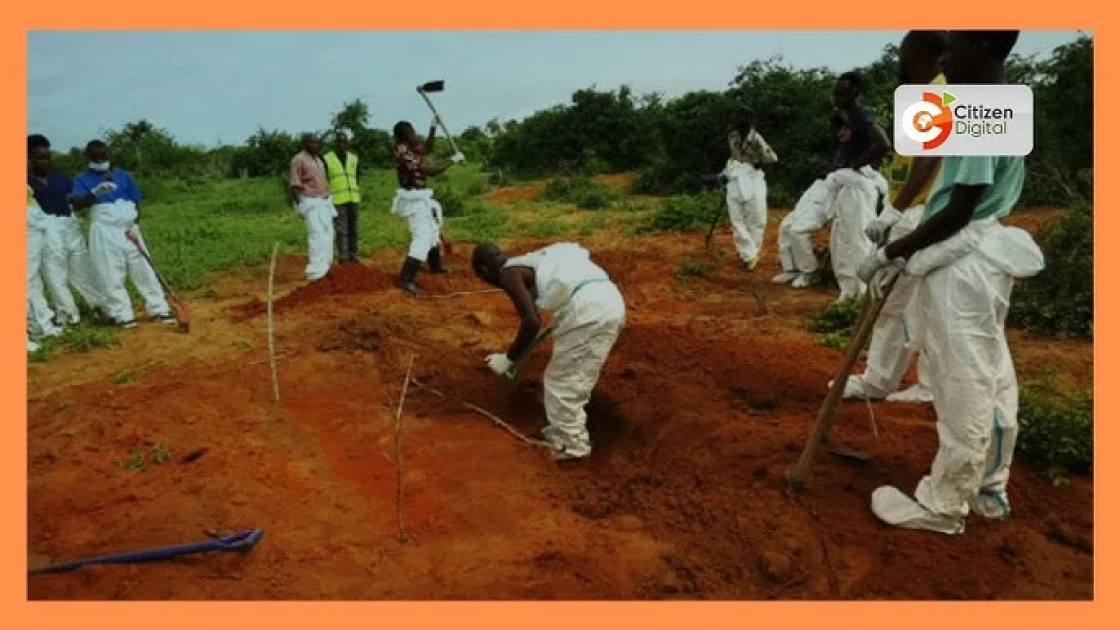Two years on, Shakahola gravediggers speak out on lingering trauma

Hired for a modest fee, they were entrusted with a grim assignment: to exhume bodies from mass graves buried deep within the Shakahola Forest.

Audio By Vocalize
Hired for a modest fee, they were entrusted with a grim assignment: to exhume bodies from mass graves buried deep within the Shakahola Forest.
Two years later, some of these men are finally speaking out, sharing harrowing accounts of the trauma that still shadows every part of their lives.
Their story is one of sacrifice, carried out quietly and largely forgotten, while the psychological toll they’ve paid remains unacknowledged.
The sleepy village of Shakahola had long moved at its own quiet pace—mundane, uneventful, and barely known outside Kilifi County. But that changed overnight when authorities unearthed mass graves on its soil, exposing the deadly aftermath of cult leader Paul Mackenzie’s teachings.
Among those summoned to assist was Emmanuel Ngolo, a boda boda rider who had never imagined himself in such a role. “We were told that young men who were physically able were needed to dig,” he recalls. Until that point, he was simply earning a living ferrying passengers. But with that call, his life veered into darkness.
Emmanuel vividly remembers the first grave they opened. “It was shocking. In the first grave, we found two bodies. I was stunned. Normally a grave holds one person. Then the second grave had three. It kept getting worse.” His voice tightens with the memory.
Shukrani Karissa, another rider, shares a moment that still keeps him awake at night. “One day, we uncovered a grave with 12 children. I’d never seen anything like that. It shook me to my core. It still does.”
Each grave revealed more horror—bodies in various stages of decay, some tangled together, limbs twisted unnaturally. The air was thick with the stench of death, flies swarmed in clouds, and the emotional weight of the task grew heavier with every dig. What they witnessed could not be unseen.
“That smell,” one of them says quietly, “it followed me home. It was like I carried the forest into my house. The stench of death settled in everything.”
The task stretched on—days turned into weeks, weeks into months. For each day of digging, they earned Ksh 1,000. But that wage did little to ease the psychological burden. To cope, many turned to alcohol. Emmanuel admits, “You couldn’t dig while sober. We’d dig all day, then drink through the night. That became the routine.”
Even now, long after the last grave was filled, the memories remain close. Nightmares are frequent. “We dream about them,” says Shukrani. “At night, I see the faces of those we exhumed. The ones we carried out. They come to me in my sleep.”
One night, he woke up screaming. “I dreamt I was being chased by them—those people from Mackenzie’s graves,” he says. His wife was alarmed. “She told me I was talking in my sleep, again. About the forest. About the graves. She keeps asking me why we haven’t sought help—why we haven’t gone to rehab.”
There was some support in the beginning. Counselling sessions were organized, and for a while, it felt like healing was possible. But that, too, faded. “The last time we had any counselling was seven months ago,” Shukrani says.
Emmanuel has since stopped working as a boda boda rider. “People avoid me. They whisper, they won’t get on my bike. I even stopped playing football. My old teammates say, ‘There goes one of Mackenzie’s men.’”
Their hands, once used to exhume the dead, are now idle. The thousand shillings they earned a day has long been spent. But the emotional cost—the nightmares, the stigma, the isolation—remains a daily burden.


Leave a Comment